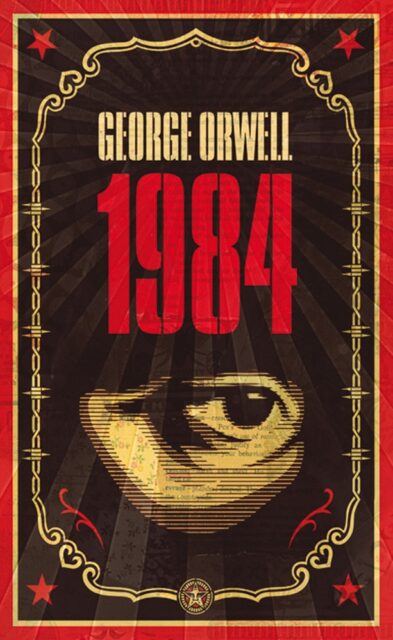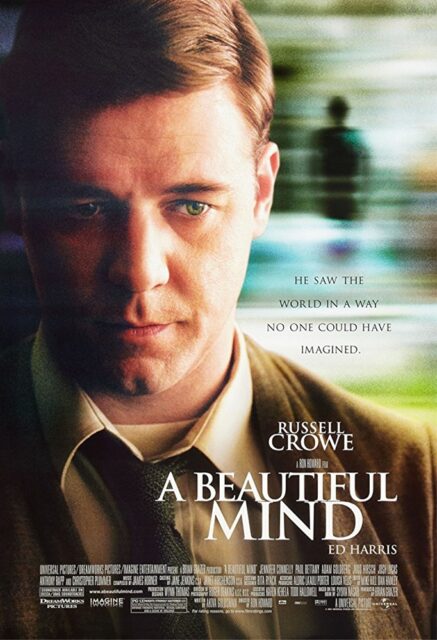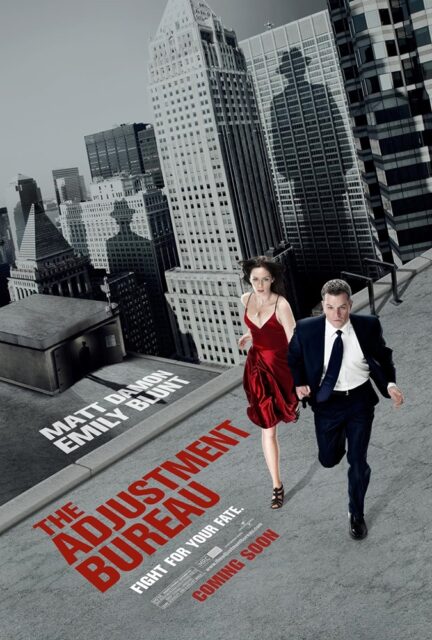Definition:
“Big Brother” is a term that refers to an authoritative or controlling figure or government that exercises oppressive surveillance and control over individuals.
Etymology:
The phrase “Big Brother” was popularized by George Orwell in his 1949 novel “1984.” In the novel, Big Brother is portrayed as the omnipresent, authoritarian leader of the Party, who uses constant surveillance to maintain control over the populace.

Description:
During the Cold War, the term became associated with the oppressive surveillance and control tactics used by totalitarian regimes, particularly in the Soviet Union and other Eastern Bloc countries.
In contemporary society, “Big Brother” is often invoked in discussions about government surveillance programs, such as those revealed by whistleblower Edward Snowden regarding the NSA’s activities.
Symbolism:
In the movie “A Beautiful Mind” (2001), “Big Brother” refers to a paranoid delusion experienced by the main character, John Nash. Nash is a brilliant mathematician who struggles with schizophrenia, which manifests in various ways, including his belief that he is being monitored and manipulated by a powerful, shadowy organization.
In “A Beautiful Mind,” Nash becomes convinced that he is involved in a top-secret government mission and that he is being pursued by mysterious forces. He imagines receiving coded messages from magazines and newspapers, and he believes that his work is critical to national security. This delusion feeds into his growing paranoia, making him believe that “Big Brother” is always watching him, controlling his every move, and monitoring his actions.
The “Big Brother” aspect of Nash’s delusions is central to the film’s portrayal of his mental illness, as it shows how deeply his schizophrenia impacts his perception of reality. The movie explores how these delusions affect his relationships, career, and overall life, eventually leading him to seek treatment and confront the reality of his condition.
The movie is deliberately constructed in a way that makes it difficult for the audience to distinguish between reality and fantasy, especially in the first part of the film. This mirrors the experience of the main character, John Nash, as he struggles with his perception of reality. Upon close inspection, it never becomes entirely clear whether he is delusional or if “Big Brother” is actually after him.
Click to read the IMDb article.

In the movie “The Adjustment Bureau” (2011), “Big Brother” refers to the overarching theme of control and surveillance by a powerful, unseen force. In this context, “Big Brother” isn’t a literal character but rather represents the organization known as “The Adjustment Bureau.”
The Adjustment Bureau is a mysterious group of agents who control and manipulate the events in people’s lives to ensure that everything follows “The Plan,” a predetermined path set by a higher power, often referred to as “The Chairman.” These agents have the ability to subtly influence people’s decisions and actions, adjusting their lives in small ways to keep them on track with The Plan.
The concept of “Big Brother” is echoed in the way the Bureau operates: they are always watching, always aware of the choices people are making, and they step in whenever someone deviates from their intended path. The main character, David Norris, discovers the existence of this organization when they try to prevent him from being with the woman he loves, Elise. The Bureau sees their relationship as a deviation from The Plan and tries to correct it by manipulating circumstances to keep them apart.
Throughout the film, the agents of the Adjustment Bureau represent the idea of a controlling force that monitors and influences every aspect of human life, much like the “Big Brother” figure in George Orwell’s “1984”. However, unlike Orwell’s oppressive government, the Bureau’s intentions are portrayed as more ambiguous—they believe they are acting for the greater good, even if it means sacrificing individual free will. This raises questions about fate, free will, and the ethics of such control, which are central themes in the movie.
Click to read the IMDB article.

The term “Big Brother” has also been appropriated by the reality TV show “Big Brother,” where participants are constantly monitored by cameras, reflecting themes of surveillance and control. “Big Brother” is a well-known show and has been adapted and aired in more than 60 countries worldwide, each with its own version tailored to local audiences. Their logos have always featured an eye. The title “Big Brother” often replaces the letter “o” with a camera lens. In the celebrity versions of the show, they usually place a star in the pupil of the eye, emphasizing that the eye and star carry the same symbolism.













































































































































































































